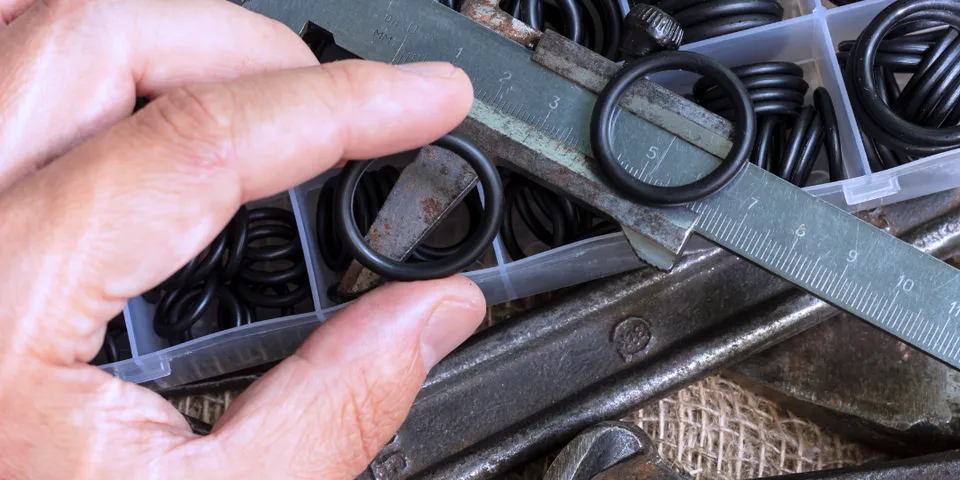O-rings are used to block openings and prevent liquids or gases from escaping in appliances and machines. While O-rings can be made of any number of materials, rubber is the most common due to its durability, hardness, and heat resistance. Review this brief guide to learn about the different types of rubber O-ring materials.
 Nitrite, which is also a synthetic rubber, can operate in temperatures from -40 degrees to 250 degrees. As known as Buna-N, it has the same hardness rating as EPDM.
Because natural rubber can react with fuel, oil, and similar chemicals, nitrite O-rings are widely utilized in the production of fuel tanks and other automotive and aerospace parts. These products are also commonly found in pumps, hydraulic equipment, and fluid pressurizing applications.
Nitrite, which is also a synthetic rubber, can operate in temperatures from -40 degrees to 250 degrees. As known as Buna-N, it has the same hardness rating as EPDM.
Because natural rubber can react with fuel, oil, and similar chemicals, nitrite O-rings are widely utilized in the production of fuel tanks and other automotive and aerospace parts. These products are also commonly found in pumps, hydraulic equipment, and fluid pressurizing applications.
A Guide to Rubber O-Ring Materials
1. Ethylene Propylene Diene Monomer (EPDM)
Ethylene propylene diene monomer (EPDM) is a type of versatile synthetic rubber. It can withstand a wide range of temperatures, from -60 degrees to 300 degrees. This makes it ideal for a variety of applications, including appliance, automotive, medical device, and wastewater system manufacturing. On the durometer scale of hardness, EPDM has a rating of 40 to 90.2. Nitrite
 Nitrite, which is also a synthetic rubber, can operate in temperatures from -40 degrees to 250 degrees. As known as Buna-N, it has the same hardness rating as EPDM.
Because natural rubber can react with fuel, oil, and similar chemicals, nitrite O-rings are widely utilized in the production of fuel tanks and other automotive and aerospace parts. These products are also commonly found in pumps, hydraulic equipment, and fluid pressurizing applications.
Nitrite, which is also a synthetic rubber, can operate in temperatures from -40 degrees to 250 degrees. As known as Buna-N, it has the same hardness rating as EPDM.
Because natural rubber can react with fuel, oil, and similar chemicals, nitrite O-rings are widely utilized in the production of fuel tanks and other automotive and aerospace parts. These products are also commonly found in pumps, hydraulic equipment, and fluid pressurizing applications.



